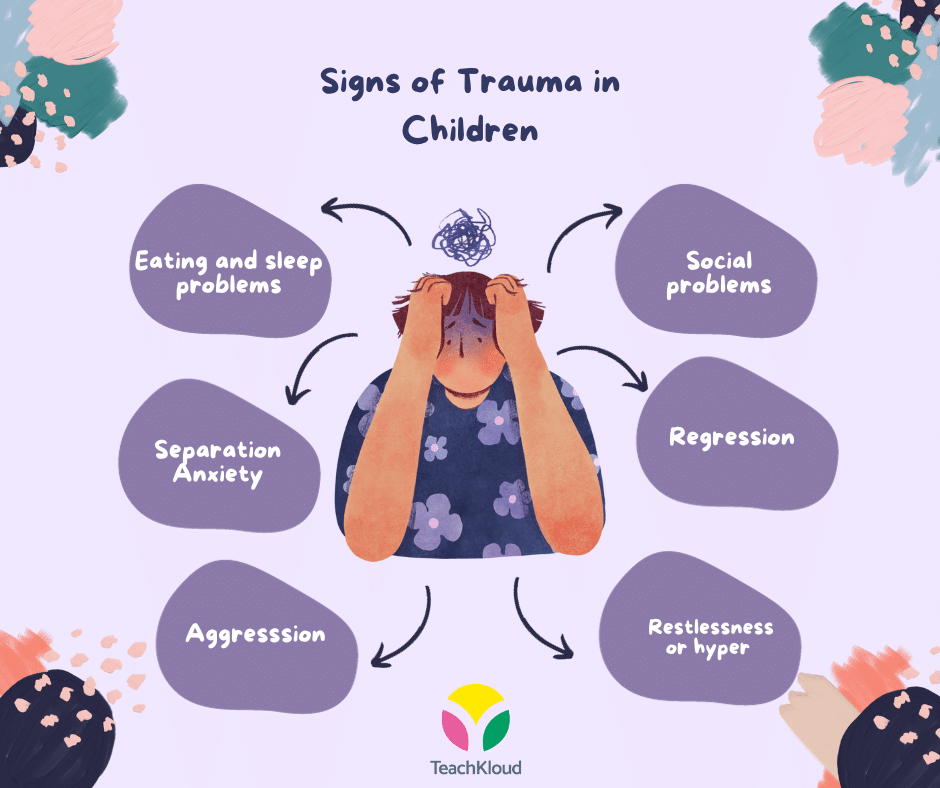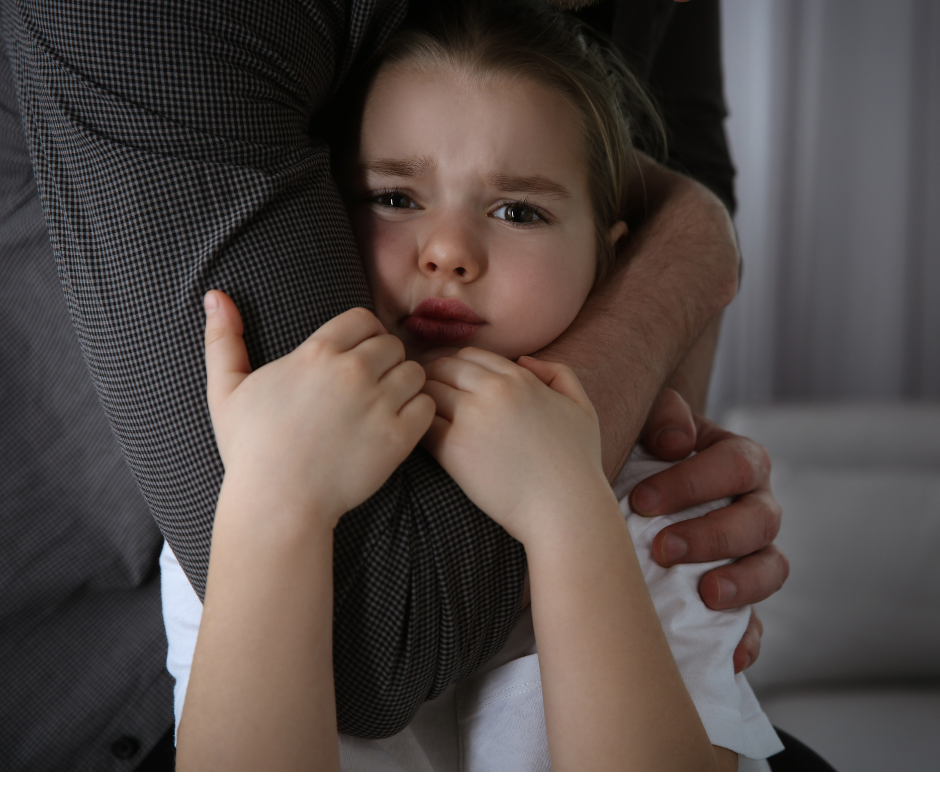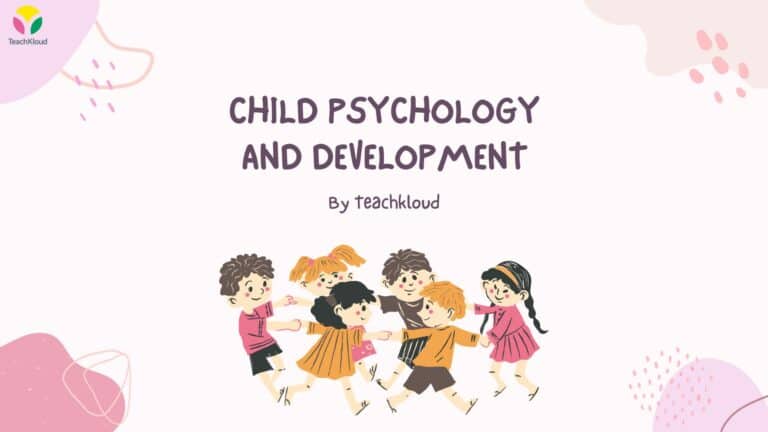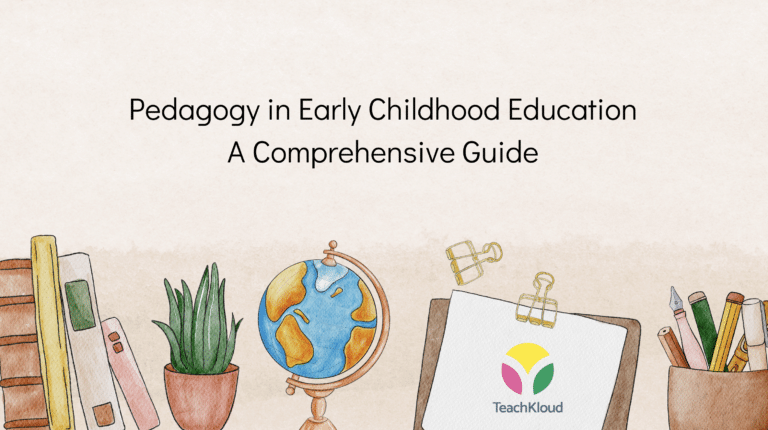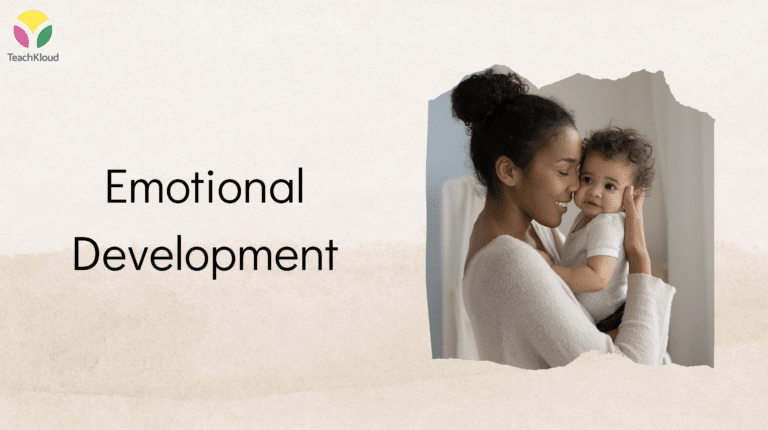Trauma-sensitive practices in early childhood education play a crucial role in supporting the healing and growth of children who have experienced trauma. As our understanding of the impact of trauma on brain development and emotional well-being evolves, so too does the importance of implementing these practices. This blog post will delve into “an introduction trauma sensitive practices that support healing in children”, exploring the various types of childhood trauma, their effects on children’s development, and how early childhood educators and caregivers can implement trauma-sensitive practices to foster healing and resilience. If you are a visual learner, our engaging 40 minute CPD free training video with an optional purchased e-certificate is available here.
In a world where approximately one in four children have been exposed to trauma, the need for trauma-sensitive practices is more urgent than ever. By understanding the different types of trauma, their impacts on children’s development, and the principles of trauma-informed care, we can better support the children in our care and create nurturing environments that promote healing, growth, and resilience.
Key Takeaways
- Trauma-sensitive practices can help children heal from adverse childhood experiences and complex trauma.
- These practices involve creating an emotionally safe environment, fostering positive relationships, providing training, support for educators and utilising a whole system approach to healing.
- Challenges such as lack of resources to educators and allied professionals must be addressed in order to successfully implement these approaches.
Understanding Childhood Trauma
Childhood trauma can take many forms, ranging from adverse childhood experiences (ACEs) to complex trauma, including domestic violence. These experiences can have significant impacts on a child’s development and well-being, influencing their ability to form relationships, regulate emotions, and cope with stress.
Bear in mind that not all children experience trauma in the same way. The effect of trauma, such as toxic stress, depends on the child’s age, the type and intensity of the trauma, the presence of supportive or protective factors.
Understanding these factors and implementing trauma-sensitive practices, enables us to assist children in recovering from traumatic experiences and bolstering their emotional development and well-being. Watch our engaging video on practical strategies for educators, parents and allied professionals here.
Adverse Childhood Experiences (ACEs)
Adverse Childhood Experiences (ACEs) refer to early adversity in the form of traumatic events that occur during childhood, including abuse, neglect, and household dysfunction. These experiences are widespread across all cultural, racial, and economic groups. The impact of ACEs on children’s development can be profound, affecting mental health, ability to form relationships, and overall well-being.
The ARC (Attachment, Regulation, and Competency) approach offers practitioners guidance and tools for working with traumatised children, emphasising the importance of revisiting different phases as children face new challenges in their lives. Acknowledging and fostering children’s strengths or talents, creating stability and support, and using trauma-sensitive practices aids in the healing and thriving of children who have experienced ACEs.
Complex Trauma
Complex trauma is defined as the continued exposure to multiple traumatic events, occurring within a child’s caregiving system, which can have long-term implications for mental health and development. Children who have experienced complex trauma may struggle to establish and sustain relationships, control their emotions, and develop self-regulation skills.
Therapeutic care is the preferred response for children and young people who have experienced complex trauma. Such children are unable to live with their family at home.The Real Life Heroes (RLH) model provides an integrated approach to working with trauma and developing resilience, encouraging professionals to collaborate around the child and family or carers, thereby, avoiding the typical silo-like response that often occurs when working with traumatised children.
The Impact of Trauma on Children’s Development
Trauma can have wide-ranging effects on a child’s development, including their cognitive, social, physical, and emotional growth. Children who have experienced trauma, often interpret certain circumstances as potentially dangerous, leading to a response of fight, flight, or freeze. This heightened sense of fear and anxiety can hinder their ability to learn, form relationships, and cope with everyday challenges.
Understanding the impact of trauma on children’s development, is vital in order to provide the appropriate support and interventions. Implementing trauma-sensitive practices in early childhood education settings aids children in developing the skills and resilience needed to overcome challenges and reach their full potential.
Child’s Brain and Trauma
Trauma can have a significant influence on a child’s brain development, potentially impacting their capacity to process information, manage emotions, and handle stress. The brain interprets sensory signals through two distinct pathways, one slower and one faster, with the latter triggering an alarm response within the body, when a threat is detected. This can create challenges for children who have experienced trauma, as their brains may be more attuned to potential threats.
Emotional Development and Trauma
Trauma can have a detrimental effect on emotional development, resulting in challenges in recognising and articulating emotions, establishing healthy relationships, and cultivating empathy. Children may have difficulty regulating their emotions, attention, and behaviour, often resorting in behaviours that concern, such as self-injury, aggression or substance misuse, in an effort to manage distress and soothe themselves.
To support the emotional development of children who have experienced trauma, it is important to:
- Create a secure and consistent atmosphere
- Cultivate trusting relationships
- Provide guidance on problem-solving techniques and other strategies for managing emotions
- Foster resilience and encourage healthy emotional growth by helping children develop self-regulation skills in a variety of environments.
We go into more detail in our introductory short course here! You can watch it in under 50 minutes and take home practical strategies, especially, for those working with young people.
Principles of Trauma-Informed Care
Trauma-informed care focuses on understanding the impact of trauma on children and implementing practices that support their healing and growth. The core components of trauma-informed care include creating emotional safety and supporting self-regulation, which are essential for helping children develop resilience and overcome the challenges they face.
Adopting a trauma-informed approach allows educators and caregivers to create nurturing environments that promote healing and growth for children who have experienced trauma. This involves:
- Recognising the signs of trauma
- Understanding its effects on children’s development
- Implementing strategies to support their emotional well-being and resilience.
Creating Emotional Safety
Creating emotional safety involves:
- Providing a stable, nurturing environment where children feel secure and supported
- Establishing a secure and dependable atmosphere
- Cultivating trusting relationships
- Assisting children in recognising and articulating their emotions
- Supporting children’s healing and growth
- Fostering the development of healthy relationships and emotional well-being
This is achieved by helping children feel safe.
Children who have experienced trauma may be particularly sensitive to potential retraumatising triggers, which can evoke memories of past traumatic experiences. Understanding a child’s background and creating an environment that supports emotional safety aids in minimising the risk of retraumatisation and promoting healing and resilience.
Supporting Self-Regulation
Self-regulation is the ability to manage one’s behaviour, emotions, and thoughts in order to reach long-term objectives. Supporting self-regulation involves:
- Helping children develop the skills to manage their emotions, behaviours, and responses to stress
- Creating a safe and supportive atmosphere
- Demonstrating appropriate behaviour
- Instructing problem-solving techniques
- Offering positive reinforcement
Providing children with multiple opportunities to practice self-regulation skills in different contexts is essential for fostering self-regulation and promoting resilience. See more on this here. Implementing strategies such as mindfulness activities and creating a secure and consistent environment aids children who have experienced trauma in developing the self-regulation skills needed for successful adult life.
Implementing Trauma-Sensitive Practices in Early Childhood Education
Implementing trauma-sensitive practices in early childhood education is essential for supporting the healing and growth of children who have experienced trauma. This involves ensuring that educators and caregivers have the training and support necessary to understand and address the needs of children who have experienced trauma, as well as creating environments that foster positive relationships and trust.
Adopting a trauma-sensitive approach, allows early childhood education settings to provide a supportive and nurturing environment for children who have experienced trauma, thereby promoting their emotional well-being, resilience, and overall development. This not only benefits the individual child, but also contributes to a healthier and more inclusive learning community.
Training and Support for Educators and Caregivers
Training and support for educators and caregivers are essential in understanding and addressing the needs of children who have experienced trauma. Unfortunately, many teachers lack appropriate training on adverse childhood experiences, with 60% of teachers not adequately trained in their needs. To get you started on your journey, this short, introductory course, gives you a fantastic foundation on supporting children who have experienced adverse childhood experiences. Providing comprehensive training and ongoing support ensures that educators and caregivers are equipped with the skills and knowledge necessary to implement trauma-sensitive practices.
Training in trauma-sensitive care should include:
- An understanding of the different types of trauma
- The effects of trauma on children’s development
- Strategies for creating emotional safety
- Strategies for supporting self-regulation
This will enable educators and caregivers to provide the appropriate support and interventions for children, helping them to heal and thrive.
Building Positive Relationships
Building positive relationships with children who have experienced trauma is essential for supporting their healing and growth. This involves:
- Creating a supportive, empathetic, and validating environment that fosters trust and connection
- Being attentive to children’s needs
- Acknowledging their emotions and experiences
- Providing a safe and nurturing environment
Cultivating positive relationships with children who have experienced witnessing domestic violence can be achieved by following these strategies.
Establishing relationships founded on mutual respect, understanding, and trust is key to helping children who have experienced trauma develop the resilience and coping skills necessary for overcoming challenges and reaching their full potential. Implementing trauma-sensitive practices in early childhood education settings provides the necessary support and environment for children to heal and thrive.
Case Studies: Successful Trauma-Informed Approaches
There are numerous examples of successful trauma-informed approaches in early childhood education settings, demonstrating the effectiveness of these practices in promoting healing and resilience for children who have experienced trauma. Some examples include:
- Creating safe and supportive environments
- Offering trauma-sensitive training and support for educators and caregivers
- Establishing positive relationships with children
These approaches have led to improved emotional regulation, increased resilience, and enhanced academic performance.
One such example is the implementation of the ARC (Attachment, Regulation, and Competency) approach, which provides guidance and tools for working with children who have experienced trauma and emphasises the importance of revisiting different phases as children face new challenges in their lives. Adopting trauma-informed practices like the ARC approach allows early childhood education settings to support the healing and growth of children who have experienced trauma, fostering their resilience and promoting their overall well-being.
The ARC (Attachment, Regulation, and Competency) framework is a therapeutic approach developed by Dr. Margaret Blaustein and Dr. Kristine Kinniburgh, primarily used to support children and adolescents who have experienced complex trauma. Early childhood educators can play a crucial role in implementing the ARC framework to help children, who have experienced trauma develop resilience and cope with the impact of their traumatic experiences. Here’s how ARC can be applied by early childhood educators:
- Assessment and Understanding:
- Early childhood educators should have a solid understanding of trauma and its effects on young children. This includes recognising signs of trauma, understanding the child’s unique trauma history, and assessing the child’s current emotional and behavioural functioning.
- Attachment:
- Foster a safe and secure environment: Creating a safe and nurturing environment is essential for children who have experienced trauma. Early educators can provide consistent routines and establish positive relationships with the child to build a sense of security and trust.
- Support healthy attachment relationships: Encourage the child to form positive relationships with caregivers and peers. Provide opportunities for the child to connect with trusted adults and promote emotional bonding through responsive caregiving.
- Regulation:
- Teach self-regulation skills: Trauma often disrupts a child’s ability to regulate their emotions and behaviours. Early educators can teach and model self-regulation techniques such as deep breathing exercises, mindfulness, and sensory regulation activities. See video examples and strategies on this here!
- Create a structured environment: Establish a structured and predictable daily routine to help children feel more secure. Visual schedules and clear expectations can assist children in understanding what to expect.
- Competency:
- Promote age-appropriate development: Encourage the child’s growth and development in a supportive manner. This may involve providing opportunities for developing their interests and passions in life, skill-building, such as fine and gross motor skills, cognitive development, and social-emotional skills.
- Encourage autonomy and mastery: Offer choices and encourage children to make decisions within appropriate boundaries. Recognise and celebrate their achievements, no matter how small, to boost their self-esteem.
- Cultural Sensitivity:
- Recognise cultural factors: Early educators should be culturally sensitive and aware of how cultural backgrounds and traditions may influence a child’s experience of trauma and their healing process. See more on supporting children who are refugees and transitions for educators, here.
- Collaboration and Communication:
- Work collaboratively: Communicate and collaborate with mental health professionals and caregivers to ensure a coordinated and comprehensive approach to the child’s healing journey.
- Self-Care:
- Prioritise self-care: Caring for children who have experienced trauma can be emotionally challenging. Early educators should prioritise self-care to maintain their own well-being and capacity to support the children effectively.
Remember that ARC is a trauma-informed framework that requires ongoing training and supervision. Early childhood educators should receive proper training and support to implement ARC principles effectively. Additionally, individualised approaches may be necessary as every child’s experience of trauma is unique, and their needs will vary.
Challenges and Barriers to Implementing Trauma-Sensitive Practices
While the benefits of implementing trauma-sensitive practices in early childhood education settings are evident, there are challenges and barriers that must be acknowledged and addressed. A lack of resources, increased demand, and excessive expectations can lead to an environment of constant crisis and dejection, creating a perceived threat to the well-being of both educators and students.
Additionally, the care system itself may potentially exacerbate the trauma, rather than aiding in recovery. Investing in the training and support of educators and caregivers to ensure they have the necessary skills and knowledge to implement trauma-sensitive practices effectively is vital in overcoming these challenges.
Addressing these barriers and fostering a whole-system approach to trauma-sensitive care enables the creation of environments that support the healing and growth of children who have experienced trauma.
The Importance of a Whole-System Approach
A whole-system approach is essential in trauma-sensitive practices to guarantee that all elements of a child’s environment, such as home, school, and community, are encouraging and conducive to recovery and development. This comprehensive approach acknowledges the interconnectedness of all facets of a child’s life, ensuring that all aspects of their environment are supportive and nurturing. Using a communication and progress tracking tool, like TEACHKLOUD, for childcare and schools are beneficial in opening up the channels of communication between the home and the school.
Adopting a whole-system approach to trauma-sensitive practices allows for the creation of a seamless network of support for children who have experienced trauma, promoting their healing and growth across all aspects of their lives. This holistic approach not only benefits the individual child but also contributes to the overall health and well-being of our communities.
Summary
Throughout this article we have explored the various types of childhood trauma, their effects on children’s development, and the importance of implementing trauma-sensitive practices in early childhood education settings – take our engaging online, short course on this here. By understanding the impact of trauma on children’s lives and adopting trauma-informed practices, we can support the healing and growth of children who have experienced trauma, fostering resilience and promoting their overall well-being.
As we continue to learn more about the effects of trauma on children’s development, it is our responsibility as educators, caregivers, and community members, to ensure that our early childhood education settings are equipped with the knowledge and resources necessary to implement trauma-sensitive practices effectively. By doing so, we can create nurturing environments that support the healing and growth of all children, contributing to a healthier and more inclusive society.
